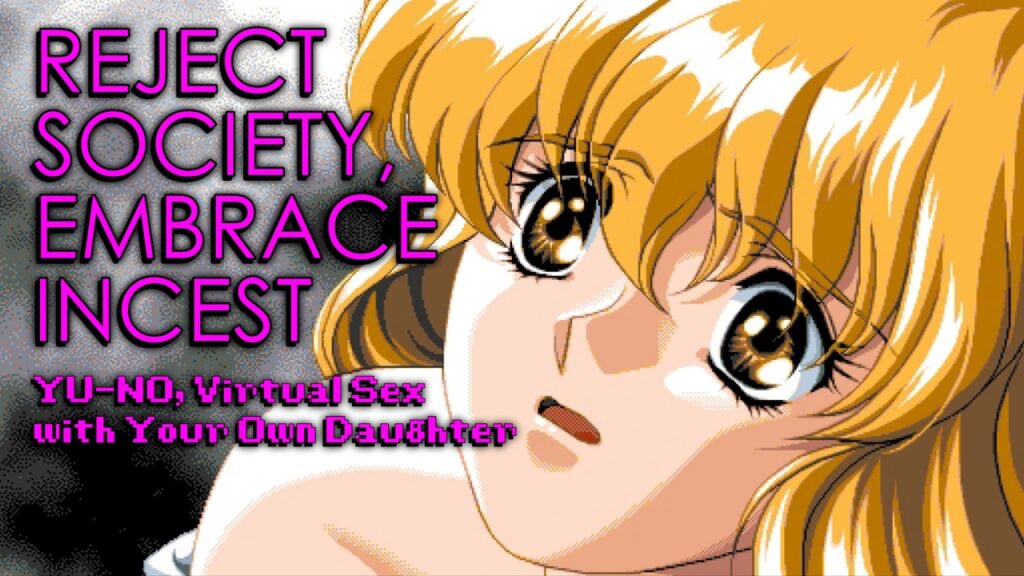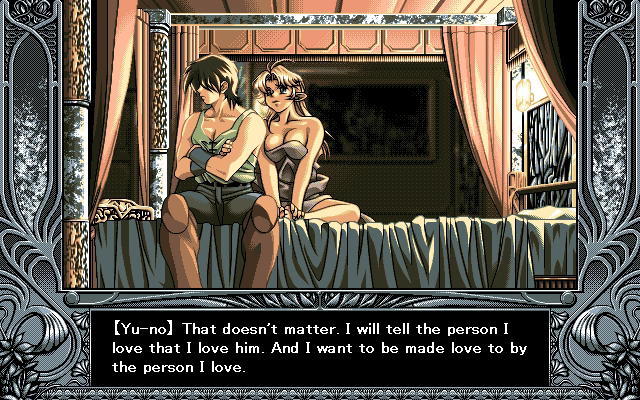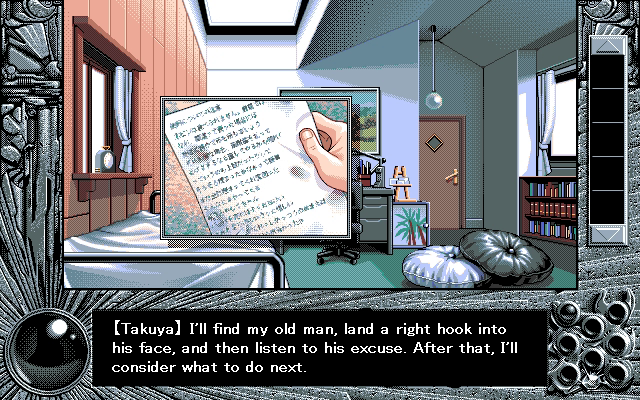Published 15 August 2022

Introduction
This essay contains sexually explicit images and subject matter. If you are a minor, then stop reading this page. There are plenty of others on this site you can look at if you want. If you keep going, then you are indicating both that you are a legal adult and that you are prepared to see and read sexually explicit material.
Quite a title on this one!
The Japanese erotic adventure game YU-NO: A Girl Who Chants Love at the Bound of This World, published by Elf Corporation in 1996 and written by the late Kanno Hiroyuki, continues to conjure fond memories. Few write about the title without at some point identifying it as a moving, intelligent masterpiece and, more recently, criticizing excessive “fanservice” as well. Expanding the scope of the stories that could be told in a Japanese adventure game, YU-NO raised expectations among players for narrative length and sophistication and supposedly influenced the digital medium that, in English, has come to be called the “visual novel.” I make clear my thoughts on this in my review of YU-NO, published on this website the same day as this essay. The review is the less formal accompaniment to “Reject Society, Embrace Incest” and recommended reading for those interested.
Accepting that Kanno’s story, as its fans maintain, is so intelligent and deliberate, this essay considers the question of what YU-NO is about. At a glance, YU-NO is a time travel science-fiction mystery thriller story concerning Arima Takuya and the various romanceable partners and paranormal melodrama the branching narrative structure enables the player to engage in. YU-NO conveys the story via point-and-click mechanics in a Prologue, the nonlinear branching “Auto Diverge Mapping System” (ADMS) segment, and a roughly ten-hour conclusion I call the Epilogue. YU-NO is all of this. But not as publicized as the ADMS gameplay is that at the core of the science-fiction mystery is the identity of a nude woman who, near the end of the Prologue, appears to engage in a prolonged kiss with Takuya at Sword Cape before flickering out of Takuya’s universe. This woman is Yu-no, the titular girl who chants love. This love is not a generalized love but love for Takuya, her father—and it is sexual love.
In a review of the 2017 YU-NO remake, Kurt Kalata of Hardcore Gaming 101 writes, “There’s an argument to be made that YU-NO would be a better game if they scaled back on the sleaziness, because the reason why the game is beloved has nothing to do with those elements.” As I also describe in my review of YU-NO, Kalata errors in believing that “those elements” could be removed from YU-NO without fundamentally altering the story. Takuya’s daughter, Yu-no, whom the player then is also primed to see as their daughter, appears half-nude and underaged on the cover, her name is the title, and her sexualized naked “adult” body at Sword Cape bookends the entire adventure, appearing to close the Prologue and set the player’s journey in motion and then returning to resolve the Epilogue. In a work of fiction, the ending is the purpose, where the threads wrap up, where the audience is given the final piece to recognize what the story’s meaning has been all along. And the ending of YU-NO is Takuya choosing his titular daughter as his sexual partner.

A romantic, incestuous abandonment of reality is the true ending and the point of YU-NO. The finale reveals that YU-NO is centrally a parent–child incest romance at least as much as—and, I contend, more than—it is anything else. With Takuya and Koudai’s toxic behavior, the story also relates parent–child incest to abusive gender norms and oppressive social structures. Kanno portrays both the incest and abuse as instances of aspirational familial love transcendent to the point of religiosity.

Initially, YU-NO appears to concern Arima Takuya’s journey to overcome the trauma with which his abusive father, Koudai, has saddled him. To do so, Takuya embarks on a time-travelling or universe-hopping adventure to find “the old bastard,” who has faked his death, and “land a right hook into his face.” At once, Takuya presents much of his father’s violent, sexist attitudes and conception of manhood. However, Takuya’s own Koudai-like behavior conflicts with the resentment he bears Koudai and his desire to be a better person than his father. Given this tension and Takuya’s occasional moments of self-reflection, the player might assume that Takuya must metaphorically “punch” Koudai by becoming a better man. However, Kanno is at least not predictable: this ostensive presentation is misleading. For YU-NO is not a story of change, growth, learning, or redemption but, as becomes undeniable in the Epilogue, a story of the reification of the status quo of Koudai’s “way of living”: toxic gender roles and violent power structures comorbid with incest and pedophilia.
The page numbers of the scattered citations of Freud below refer to the Modern Library edition of The Basic Writings of Sigmund Freud, translated by A. A. Brill and published by Random House in 1938.